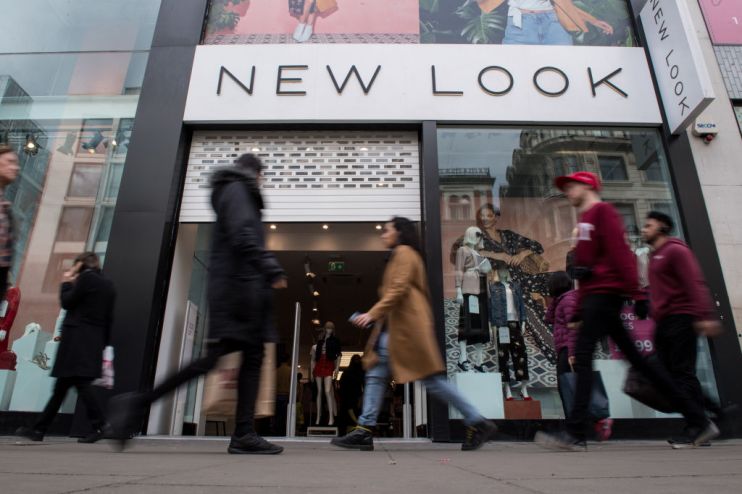A New Look for high street retail? Here’s what matters in the Covid-19 world

It has been what Sir Alex Ferguson used to call “squeaky bum time” for fashion retailer New Look these past few days.
On Monday it was being reported that British Land and Landsec, two of the chain’s biggest landlords, were preparing to vote against the proposed company voluntary arrangement (CVA) which would have switched the majority of New Look’s rental payments to a formula calculated according to turnover, and therefore directly linked to its financial health.
The bottom line was that the CVA would have slashed New Look’s rent in the short term, giving it breathing space in the economic squeeze, but the landlords were unwilling to bear that cost themselves.
A rejection of the terms of the CVA looked likely to be fatal to the company. Phrases like “on a knife-edge” and “future in the balance” were being bandied about, and some commentators had gone as far as to speculate that Boohoo Group might make a bid for New Look if the chain collapsed.
Andrew Busby, a veteran retail analyst, tweeted grimly: “If landlords reject the New Look proposal tomorrow, they’ll basically be voting for the death of the high street.”
What a difference a day makes. On Tuesday, New Look’s landlords and other creditors approved the CVA and acceded to substantially reduced rent payments, which, in concert with a promised injection of cash from the group’s debt holders, will give New Look a chance to survive and restructure to ride out the current difficulties in the sector.
This is good news for New Look, and, for the moment, good news for the high street, which the government is seeking to re-energise. Nigel Oddy, the company’s CEO, said “We still fundamentally believe the physical store has a significant part to play in the overall retail market and our omnichannel strategy.”
More realistically, New Look has played a get-out-of-jail-free card, because the retail landscape has not changed overnight: clothes sales are still down by a quarter from February, food sales are still contracting and rents remain a huge pressure for large- and small-scale physical retailers.
New Look is not alone in feeling the pinch, of course. Debenhams has laid off thousands of workers and is now embroiled in legal action with some of those made redundant. Zara has closed more than 1,000 stores worldwide and is switching its efforts to online shopping after registering its first-ever loss.
Profits at Mike Ashley’s Frasers Group, meanwhile, have fallen by 20 per cent. So it is not that Oddy is doing an unusually bad job. But there are other factors at work apart from the Covid-induced lockdown.
Consumer trends are changing, and changing in several ways. The popularity of fast fashion – into which category New Look falls, whether it likes it or not – is teetering. This summer’s scandal over the conditions in factories in Leicester which supplied Boohoo put a huge dent in the reputation of cheap, disposable clothing, and New Look is not immune: one UK website in July rated the chain 43/100 for transparency and only 2/5 for sustainability.
This all matters. A study by Accenture found that 99 per cent of CEOs thought sustainability was “critical to their future success” and had a direct link to brand value. Some of the biggest brands in fashion, such as H&M, Inditex and the mighty LVMH are setting ambitious goals in this regard because they acknowledge its centrality to their future prosperity. New Look have made some progress, without question, and have made bold statements in terms of ethical production and environmental impact, but the focus is relentless.
So New Look survives for now, and we should be glad of that. From its origins in Somerset 50 years ago, the company now employs more than 22,000 people across nearly 1,000 outlets.
Its disappearance from the retail sector, even if its bones were picked over and continued to provide some sustenance, would be a disaster, and, as mentioned earlier, probably a catalyst for further failures and collapses.
Retail needs to look at the world holistically, now more than ever. It is no longer a simple matter of persuading people to buy cheap clothes in as great a volume as possible. The customer wants more, he or she wants a commitment to responsibility and a degree of accountability, even for the most trivial purchase.
And what do we know is the maxim of sales? The customer is always right.
Eliot Wilson is co-founder of Pivot Point